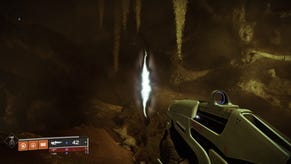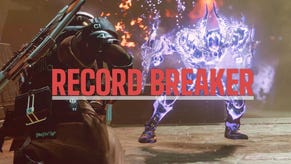Is PSN ready for Destiny?
Less than two weeks out from one of the largest multiplayer launches of the year - maybe ever - the PSN is as shaky as a newborn lamb.
This week, the PSN was one of several gaming networks brought down by a DDOS attack. The downtime kicked off before I started work, and the PSN came back up just after I signed off for the day, so Sony's network was out of action for at least nine hours.
It seems incredible that, in the wake of PSNgate, Sony doesn’t have the network infrastructure to cope with problems more quickly and easily than it does.
What makes this incident so concerning is that it isn't the first time. Sony suffered a series of outages in April 2011 as a result of DDOS activity, shortly before the incident we've come to know as "PSNgate", when hackers broke through Sony's apparently insufficient security and compromised user details, leading to one of the most extended outages in gaming history at 24 days.
As far as I recall - not that I'm a perfect resource, obviously - the PSN hasn't been brought down by DDOS or other malicious activity since. But it seems incredible that, in the wake of PSNgate, Sony doesn't have the network infrastructure to cope with problems more quickly and easily than it does.
We shouldn't underestimate the power of DDOSing, of course - it's an absolute pain in the arse, regardless of how well-equipped you are, and when a really big one happens even the largest and most steady networks will be affected. But other gaming services seem to recover so much more hastily than the Sony Entertainment Network (officially, that's its name now). Both Battle.net and League of Legends were hit by the initial attacks this week, and both were back online almost immediately. The PSN, by contrast, went down and stayed down.
It's possible Sony kept the PSN down deliberately to put further protections in place, and if so, there's a case to be made that it did the responsible thing, and may weather future storms better than Blizzard and Riot.
But there's also a case to be made that if you're paying for something, you expect it to work, not just switch off for half a day when a group of teenagers with their first botnet get big ideas about correcting corporate capitalism (??) by ruining your evening's entertainment. And we do pay for the PSN now, through PS Plus, and I'd argue that when you buy a multiplayer game at full price you're paying for the online service, too - and you ought to get it.
If you're paying for something, you expect it to work. What I want to see from Sony moving forward is the kind of communication and responsiveness that Microsoft has manifest for years.
What I want to see from Sony moving forward is the kind of communication and responsiveness that Microsoft has manifest for years. One thing I've heard people say in the wake of this week's outage is "when was the last time you remember Xbox Live going down?"
Well, uh, last month, actually. And the month before. And the month before. It goes down all the time, in fact - but it comes back up fast, and you're never left wondering about it, so you forget and move on.
The truly excellent Xbox Live Service Status page is quite transparent, telling us what is going wrong, how Microsoft is approaching it ("we're trying to determine the cause", "we're implementing a fix"), and where possible, an ETA for the next update. And when Xbox Live goes "down", it tends to be piecemeal - one set of services will go offline, like sign-ins or purchases, while others remain in place.
When the PSN goes down, everything goes down, and Sony has little to say on the matter. This week, it surprised the hell out of us by even admitting it had gone down before a DDOS attack, but apart from acknowledging the problem and intermittently - very intermittently! - saying it was working on it, it didn't tell us what was going on.
In the context of the extended outage that followed, comparing Sony's reaction to Microsoft's is frankly embarrassing to the Japanese giant. When Xbox Live started to have issues, many of you probably didn't even notice until Microsoft told you about it, and by the time we'd gone to check it out, it was fixed. I couldn't say for certain, as both companies occasionally delete and overwrite their updates, but I'm reasonably sure Microsoft made more updates in this brief period than Sony did during my entire work day.
I must emphasise that we don't know if Microsoft was targeted by a DDOS attack as Sony was. "Hacker" group LizardSquad made some noises along those lines, but as security circles believe the group had nothing to do with the attacks that brought down the PSN and other gaming networks, it's entirely possible LizardSquad was capitalising on some coincidental Xbox Live issues. Maybe Microsoft didn't experience anything like the attack Sony suffered, and to compare the two is unfair; after all, Microsoft made no reference to DDOS or any other sort of malicious behaviour.
If the PSN goes down – for maintenance, in the face of DDOS attacks, for any other reason – for more than a couple of hours during that whole first week after Destiny's launch, there’s going to be backlash.
It's a comparison that will be made anyway, and it's one that is made regularly. The PSN has an unfortunate legacy to overcome, as it was pretty rubbish at launch. It's much better now, but you know the reputation I'm referencing here - slow downloads, constant updates (don't get me started on how annoying I find this complaint as somebody who switches their Xbox 360 on less than once a month), patchy connections, lag. Plus, you know: PSNgate.
It's a comparison Sony can ill-afford. It's made a huge fuss - and likely investment - in Destiny, a hugely-anticipated online-only game that is almost guaranteed to be bollocksed by demand at launch.
We're going to have to accept that launch day will likely be rocky, because it always is, but if the PSN goes down - for maintenance, in the face of DDOS attacks, for any other reason - for more than a couple of hours during that whole first week, there's going to be backlash, and it's going to be nasty. This is a game being advertised on billboards in Times Square, for heaven's sake.
Destiny's only one of a huge number of games that are likely to bring scrutiny to the PSN. With the annual Madden release this week, release season has kicked off - right through the holiday period, gamers are going to be hugely active, and in this day and age a huge proportion of their activity is going to be online.
Sony doesn't just need to worry about fleeting gamer rage either. This is the PS4's big year to shine. Sony's managed to dominate the dialogue so far, so that as far as the casual observer goes the PS4 is "winning" the console war. But Microsoft really isn't that far behind, and has some strong cards to play this season. Sony needs a smooth, joyous couple of months to push the PS4 to the top of Christmas wishlists, and to keep it out of trade-in bins until the important first quarter release season is over.
Sony's said it has a lot of new converts, as well as entirely new gamers, in the PS4 user base. These users are not going to tolerate a flaky console network that frustrates them with downtimes and lack of communication. Hardcore gamers may whinge and moan, but we generally keep buying games and hoping for better times - new users just lose interest, or go back to more reliable options.
For Sony's sake, I hope this week's PSN outage was deliberately extended. I hope the upcoming, delayed maintenance period is a doozy.
I hope Sony's ready for Destiny.
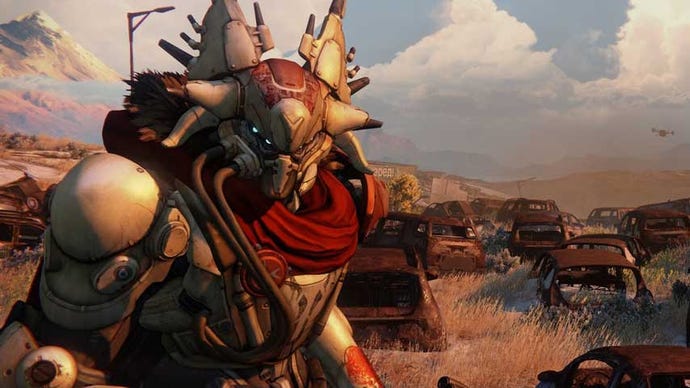




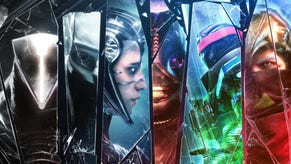

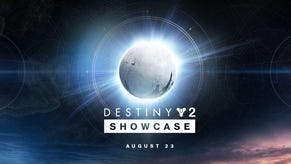
.jpg?width=291&height=164&fit=crop&quality=80&format=jpg&auto=webp)


